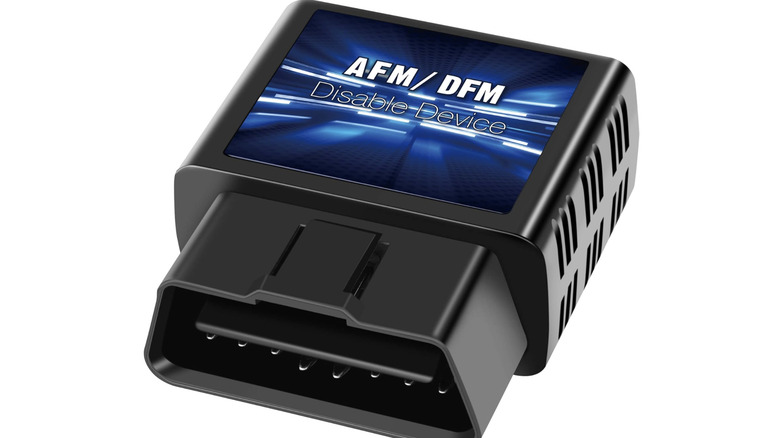What Are Fuel Saver Chips, And Do They Really Work?
We may receive a commission on purchases made from links.
In nearly 40 years of working on my own cars, I've been exposed to a staggering variety of products that promised to make vehicles more reliable, powerful, and efficient. In days of yore, these products were largely limited to liquid additives like Marvel Mystery Oil, SeaFoam engine treatment, and Liqui Moly Engine Flush. While these additives can actually help condition worn seals and gaskets and improve the friction of engine internals, some more recent products focus on the computers that manage your car's fuel delivery and emissions systems with the promise of increasing fuel mileage.
These products are called Fuel saver chips, and they usually come in the form of a plastic device that plugs into the On-Board Diagnostics (OBD) port under your dashboard or in your engine compartment. One such product is the Fogfar ECO OBD2 chip shown above, which Amazon sells for just $11.95.
It promises a 15% fuel savings, but any reduction in fuel consumption will come purely from having a lighter touch on the gas pedal after thinking you have some miracle technology helping you. To reprogram your car's Engine Control Unit — the computer that manages fuel delivery — requires more than a $12 device that plugs into a port intended to diagnose problems with your emissions system's sensors.
There's no magic device to save fuel
To quote FBI agent Fox Mulder from "The X-Files," "I want to believe." He was talking about spirits and aliens, but ghosts and Martians have as much chance of improving your gas mileage as one of these so-called "fuel saver" chips. In fact, while the OBDDFM AFM/DFM Disable Device sold on Amazon for $53.99 does work as it claims, it will actually make your GM vehicle use more gas.
This device shuts off the Active and Dynamic Fuel Management systems in your vehicle, which are programmed to save fuel by deactivating unneeded engine cylinders when demand is low. Cheap fuel saver chips don't do anything except make you think you're saving fuel, which might have a placebo effect that actually leads you to have a lighter touch on the gas pedal.
The hard truth is, there's no magic trick to saving fuel. The best ways to maximize fuel efficiency are to keep your tires properly inflated, limit hard acceleration and braking, and keep up on routine maintenance like oil and spark plug changes. Save that $12 you were going to spend on a fuel saver chip and buy yourself a few gallons of gas instead.

